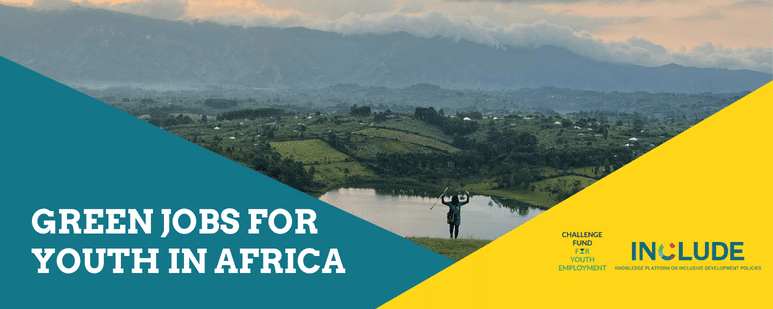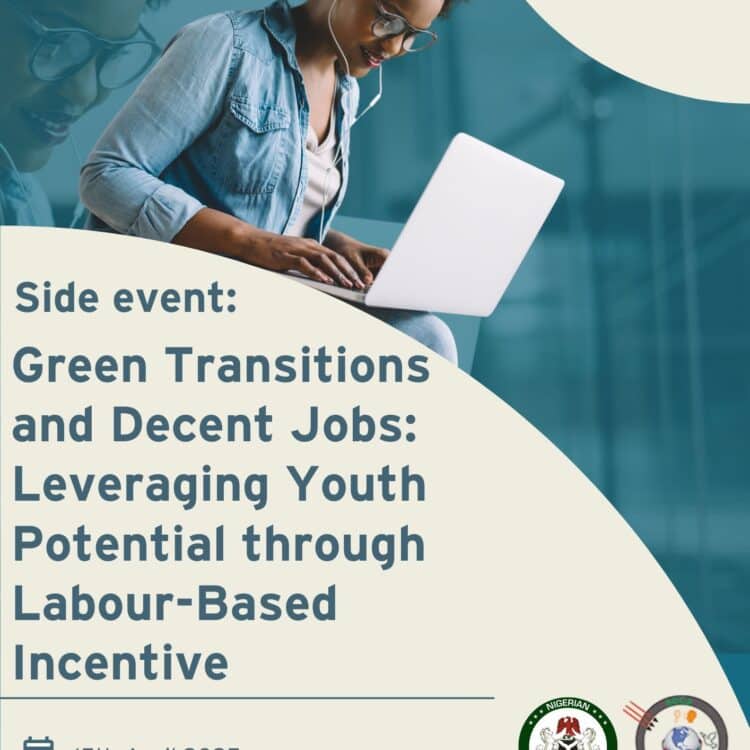
By Siri Lijfering and Ninja Lacey
The African green transition has the potential to create a plurality of green job opportunities that help tackle the negative consequences of climate change. But what are green jobs and how can they be a solution to youth unemployment and climate change in Africa? To find out more, INCLUDE and Palladium engaged in a collaborative research project in the context of the Challenge Fund for Youth Employment.
Although more work is needed to realise the full potential of the green transition, our research project shed some light on the road ahead. We distilled the following six key insights about green jobs.
Green Jobs
1. Green jobs creation is a process, rather than an outcome
There are many different ‘shades of green’ when it comes to green jobs. Green jobs can be found along a continuum of business models in various sectors, with varying degrees of sustainability. Green jobs and the transition to a green economy is, therefore, a process, rather than an outcome.
2. Knowledge is key
To enable policymakers and practitioners to stimulate green jobs for youth, a strong evidence base is needed. Systematic creating, monitoring and publishing of knowledge is of the essence. Evidence synthesis will play a crucial role as well.
3. Long-term investment is needed
Finance protocols and evaluation methods need to adopt longer-term investment strategies. Small and medium enterprises play an important role in green job creation, but green businesses tend to have longer expected payback periods and higher perceived risk. Adapting current strategies to the long-term is needed to allow for green business to be scaled.
4. Provide youth with the skills to match the future of work
Though it is important to recognise and build on youths’ existing skills, a changing job market may require new skills. Investment in both soft skills as well as technical, management, and vocational training is needed to prepare youth for the future of work.
5. We must move from standalone initiatives to multi-stakeholder collaborations
A variety of stakeholders need to work together to implement comprehensive policies to enable the transition to a green economy in Africa. Multi-stakeholder partnerships are needed, which include national and local governments, international donors, the private sector, civil society organisations, and trade unions. Knowledge platforms can play a coordinating role and support the creation of the broader community of practice.
6. Youth in the driver’s seat
Policies and programmes to stimulate youth employment must be informed by youth themselves. Youth must not only be consulted, but must be part of decision-making on policies and programmes.




